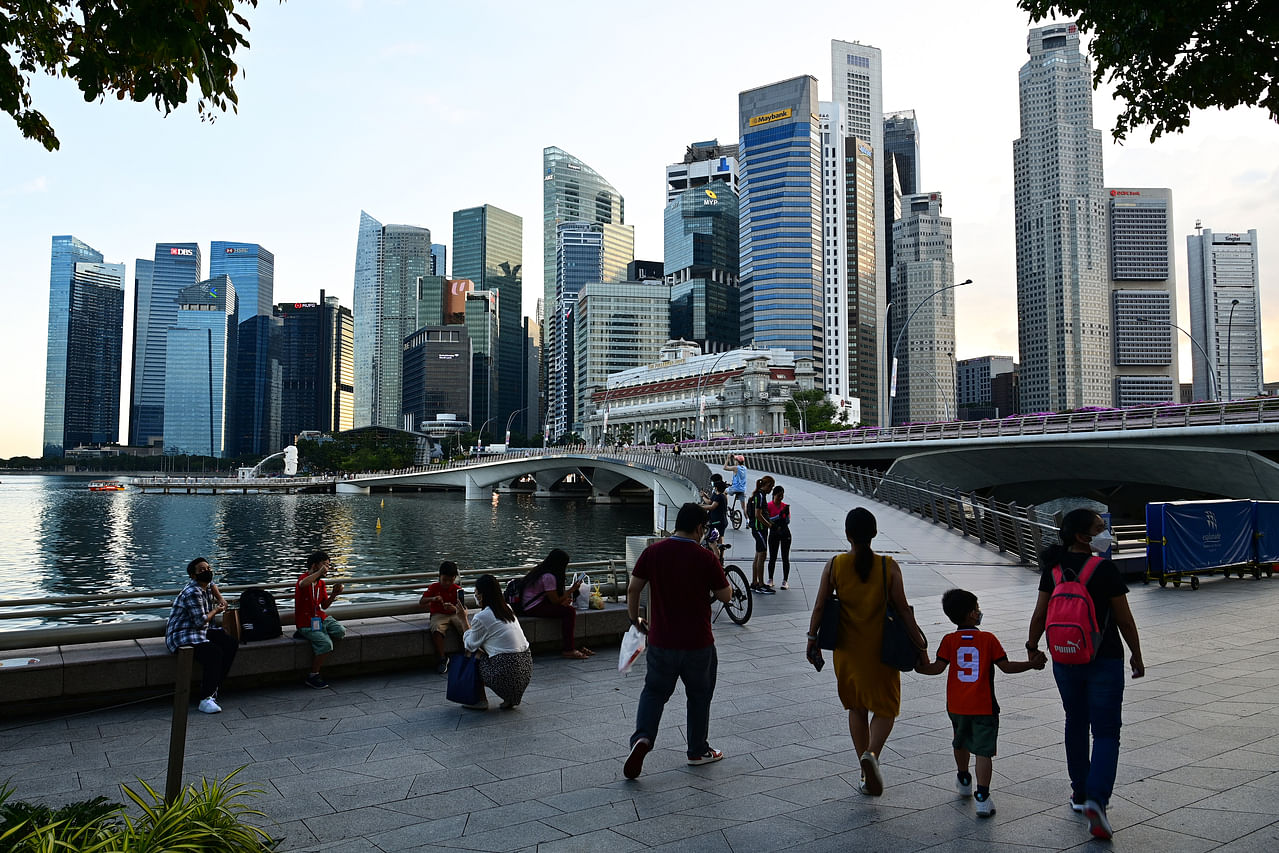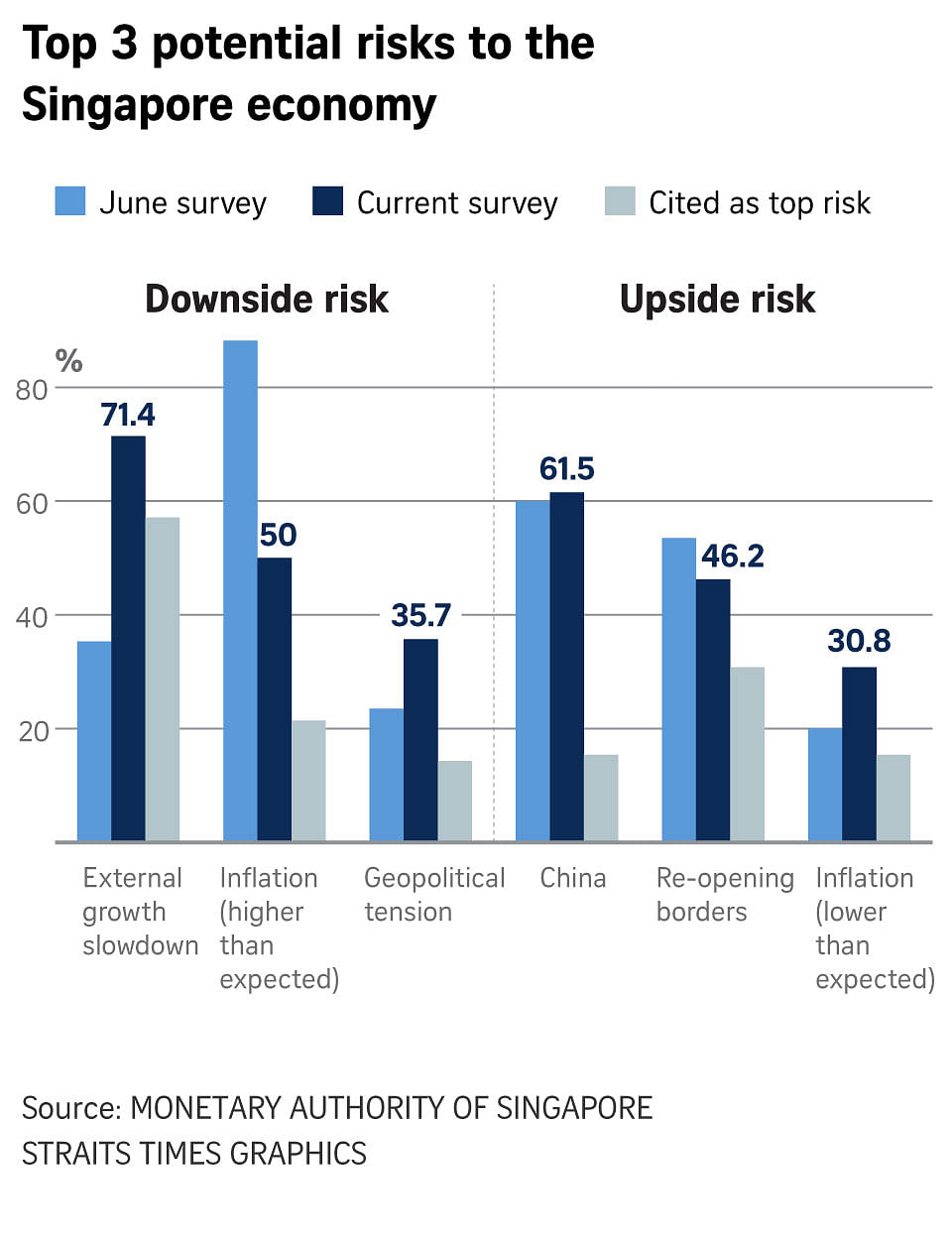Economists cut Singapore's 2022 growth forecast on inflation, global slowdown woes: MAS poll
Sign up now: Get ST's newsletters delivered to your inbox

The Republic's economic growth was projected at 3.5 per cent for the full year.
PHOTO: ST FILE
Follow topic:
SINGAPORE - Private-sector economists shaved their 2022 growth forecast for Singapore, citing the sharper-than-expected surge in inflation and the slowing economies of its trading partners as the key downside risks.
The Republic's economic growth was projected at 3.5 per cent for the full year, according to the quarterly survey of professional forecasters released by the Monetary Authority of Singapore (MAS) on Thursday.
This is lower than the 3.8 per cent growth tipped in the previous survey released in June. The gross domestic product (GDP) growth forecast for 2023 was also cut to 2.8 per cent from 3 per cent.
However, given Singapore's tight labour market, the economists expect the overall unemployment rate to reach 2 per cent by the year-end, better than the 2.1 per cent they had predicted in the poll in June.
The survey follows the Ministry of Trade and Industry's (MTI's) move last month to narrow its range for Singapore's GDP growth this year to 3 per cent to 4 per cent, from an earlier projection of 3 per cent to 5 per cent.
The official downgrade was in tandem with a worsening outlook for the global economy and stubbornly high inflation.
In the latest MAS survey, the private-sector analysts also raised their inflation forecasts for this year.
Overall inflation, or headline inflation, for the whole of 2022 is now expected to hit 5.7 per cent, up from 5 per cent in the previous survey.
The forecast for core inflation, which excludes private transport and accommodation costs, was raised to 3.8 per cent, from the earlier prediction of 3.4 per cent.
MAS expects headline inflation in 2022 to come at between 5 per cent and 6 per cent, with core inflation to average between 3 per cent and 4 per cent.
For 2023, however, the economists in the MAS survey expect both overall and core inflation to ease. Headline inflation is forecast to ease to 3.5 per cent next year, while core inflation is expected to cool to 3.1 per cent.
Still, their forecast shows that the pace of price gains will be much higher than the 1.5 per cent average for inflation during the decade before the Covid-19 pandemic.
The economists in the MAS survey deemed spillovers from an external growth slowdown among Singapore's major trading partners as the biggest risk for the domestic economy.
It was identified by 71.4 per cent of respondents and was ranked as the top downside risk by 57.1 per cent.
The respondents were also concerned about downside risks from a sharper-than-expected rise in inflation and an escalation in geopolitical tensions.
Meanwhile, more robust growth in China, underpinned by macroeconomic policy easing and economic re-opening, was the most frequently cited upside potential to Singapore's growth outlook and was identified by 61.5 per cent of respondents.
They also flagged the potential growth drive from an accelerated revival in travel and tourism driven by ongoing border re-openings.


